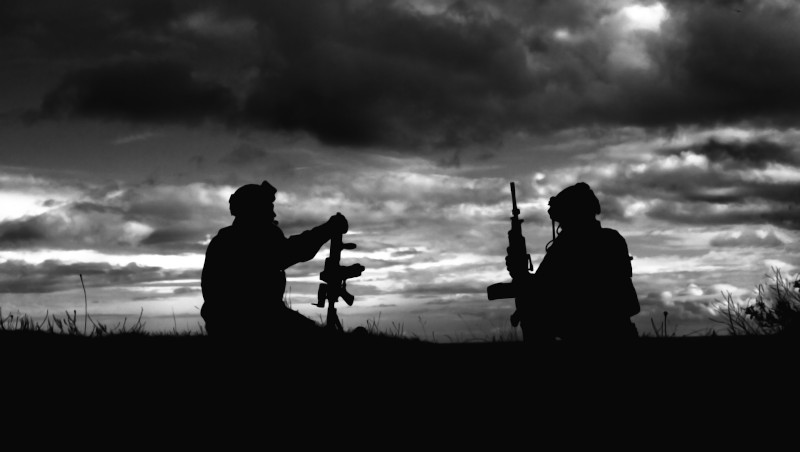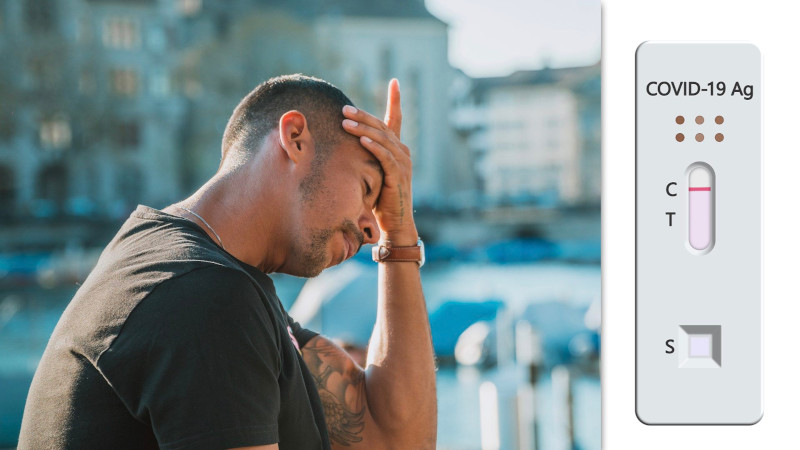
Sleep disorders & Covid-19
Can severe Covid disease lead to sleep disorders? This now appears to be a cohort study by a team led by Dr. Ziyad Al-Aly, director of the Clinical Epidemiology Center and chief of research and education service of the Veterans Affairs St. Louis Health Care System with US veterans. However, is the result simply transferrable to the mass?
An American study with US veterans 1 shows that sleep disorders are more common among recovered Covid patients than among veterans who did not contract Covid-19 by the end of the study .
The study seems to support the assumption that an infection with Sars-CoV-2 can also affect the psyche in the long term. Many of those recovered would still suffer from mental health problems a year after their diagnosis.
The study
To learn more about the association between sleep disorders and COVID-19 illness, 153,848 (2.46%) of 6,241,875 veterans
- surveyed by the Veterans Health Administration2
- and had at least one positive Covid-19 polymerase chain reaction (PCR) test result between March 1, 2020 and January 15, 2021,
- and were alive 30 days after the positive test result
. The start of follow-up was set as the date of positive test result in the Covid-19 group; The follow-up ended on November 30, 2021.
41% more sleep disorders
As a result, at the end of the observation period, 41% still complained of sleep disorders, some of which was severe. The study therefore seems to support the assumption that an infection can also have a long-term effect on the psyche.
The research team led by Ziyad wants to investigate whether the corona virus can directly affect the brain. There are assumptions that an infection can promote inflammation and thus also psychotic symptoms.
“Inflammation can affect how the brain functions in a number of ways, such as the production of serotonin. This hormone fundamentally affects sleep and also mood.”
Maura Boldrini, Professor of Psychiatry at Columbia University Medical Center3
Boldrini explains the increased susceptibility to mental illness among those who have recovered from Covid-19 with a combination of biological and psychological stressors.
Study leader Ziyad Al-Aly is already talking about chronic diseases.
“The diseases we are talking about are chronic diseases that people can suffer from until the end of their lives”
Ziyad Al-Aly4
Questions
Whether a biological or psychological cause is decisive for the sleep disorders has not yet been proven. It is therefore important to include the following circumstances when drawing conclusions about the cause on the basis of this study:
- The participants in the study are war veterans with an average age of 63 years. In addition, only veterans who visited the Veterans Health Administration in 2019 were examined. This facility is usually attended by veterans who have suffered from the mostly lifelong physical and psychological consequences of war operations. According to statistics from the US Department of Veterans Affairs5, between 12% (Desert Storm) and 30% (Vietnam War) of all returnees from combat operations suffer from PTSD, often lifelong, and are therefore dependent on medication. This means that the group examined is in any case made up of people who are very susceptible to sleep disorders or who can only control them with medication. Those who visit the Veterans Health Administration usually already have health problems.
- “Basically, all serious illnesses can lead to PTSD combined with sleep disorders.”6Dr. Jenny Rosendahl7
A potentially large increase in sleep disorders thus characterizes any type of serious illness. It would be wrong to assume that this is now a specific development of people suffering from Covid-19. - Especially for people who already have PTSD, serious illnesses can be a trigger for a flare-up of PTSD diseases that may have already been overcome. Being accompanied by increased drug use, opioids or even suicidal thoughts is often another consequence of this, and by no means can it be attributed only to a Covid 19-based illness.
- Media reporting in the USA, too, has extremely fueled fears of the consequences of a Covid-19-based disease. This certainly has an impact on the fact that people who already suffer from anxiety disorders fall back into pathological developments much more quickly than others. Especially when the public duct speaks of war against the virus. Then people who have survived a real war with physical and mental consequences fall into a special alert mode when they have to or had to survive another war with physical and mental consequences.
Conclusion

We still know too little about the actual causes of the results shown in this study. To my knowledge, there is currently no scientific evidence that the biochemical structure of the different variants of the corona virus can be causally responsible for sleep disorders, and not the psychological consequences resulting from experiencing the disease, such as PTSD.
I think it is premature to hold Covid 19 as a virus solely responsible for the sleep disorders mentioned in the study, but it is extremely likely as a trigger. However, the latter applies to countless other diseases as well. In the case of the above-mentioned study, the generality of the study group cannot be inferred from the constellation.
Also in 2020 there was already a study at Oxford University8. At that time, the incidence for a psychiatric diagnosis (anxiety disorder, sleep disorder and dementia) after a Covid-19-based illness was 18.1% of which only 5.8% was a primary diagnosis. According to this study, stress, anxiety, but also previous mental illnesses are possible causes.
The strikingly higher rate of sleep disorders in the veterans group compared to the group in the Oxford study seems to me to be more evidence that illness caused by Covid-19 infection reactivates or supports existing sleeping or present psychological patterns and imprints.
Thus, for sleep disorders that occur after Covid-19 illness, as with other diseases, in therapy, in sleep coaching as well as in ChronoCoachings, it is important to clarify to what extent issues such as PTSD, anxiety disorders, depression were already present before the illness caused by the virus templates, even if they seemed to have already been overcome. It is also important to find out whether the psychological experience of the disease, accompanied by the media coverage of the pandemic, can play a role in the sleep disorders.
Michael Wieden beschäftigt sich als Betriebswirt seit 2002 mit der Chronobiologie im Personalmanagement. Schon 2003 hielt er hierzu seinen ersten Vortrag auf einer Veranstaltung der INQA (Initiative der neuen Arbeit).
Zu den Themen „Chronobiologie im Personalmanagenement“ sowie mobilen Arbeitsformen hat er bereits Bücher geschrieben, und dabei den Begriff „Liquid Work®“ geprägt.
Zusammen mit Claudia Garrido Luque gründete er 2014 die aliamos GmbH und berät seit dem Kommunen, Unternehmen und Kliniken zum Betrieblichen Gesundheitsmanagement. Von 2012 bis Ende 2016 war er externer Wirtschaftsförderer für die Stadt Bad Kissingen und Initiator des weltweit einzigartigen Projektes „ChronoCity – Pilotstadt Chronobiologie“. Zu ChronoCity®, Chronobiologie-Themen und mobilen Arbeitsformen trat er wiederholt als Experte in verschiedenen Fernsehformaten (z.B. TerraX, Planet Wissen, W wie Wissen, Xenius etc.) auf. Zudem war er von 2014 bis 2017 Mitglied des Arbeitskreises „Zeitgerechte Stadt“ der ARL – Akademie für Raumforschung und Landesplanung in Hannover.
Aktuell hält er Vorträge zum Thema “Chronobiologie im Personalmanagement” und “Mobile Arbeitsformen”, und berät Unternehmen bei der Umsetzung chronobiologischer Ansätze in Unternehmen und Kliniken.
Footnotes
- https://www.bmj.com/content/376/bmj-2021-068993
- https://www.ptsd.va.gov/understand/common/common_veterans .asp
- Source: https://www.businessinsider.de/wissenschaft/grosse-studie-zeigt-risiko-fuer-schlafstoerungen-steigt-nach-covid-19-um-41-prozentpunkte/
- https://www.bloomberg.com/news/articles/2022-02-16/mental-health-scars-stay-with-survivors-long-after-covid-battle
- https://www.ptsd.va.gov/understand/common/common_veterans.asp
- Source: https://www.spektrum.de/news/weiterleben-nach-schwerer-krankheit/1792274
- PD Dr. phil. med. habil. Jenny Rosendahl teaches and researches at the University of Jena. Her areas of specialization include psychological interventions after life-threatening illnesses.
- https://www.thelancet.com/journals/lanpsy/article/PIIS2215-0366(20)30462-4/fulltext
